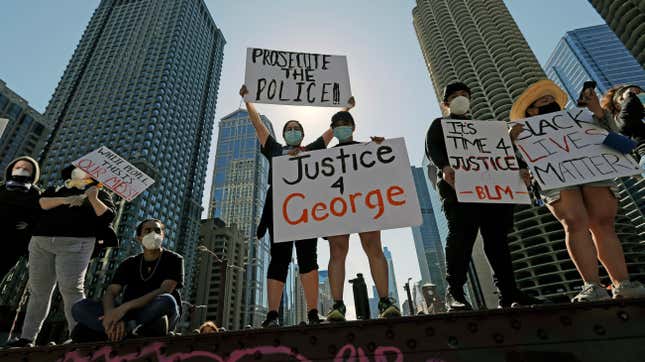Cities Are Using the Poor as Collateral Damage to Block Protesters
Politics

Nationwide protests in honor of George Floyd, a black man who died after a white Minneapolis police officer held him in neck restraint, haven’t put a pause on a collection of ongoing traumas–the covid-19 pandemic, the economic precarity that has come in its wake, or the essential workers risking their lives to carry on in public spaces. But officials in major cities are using the protests as an excuse to suspend vital services that are especially crucial because they impact all of the above. Cities like Chicago, Philadelphia, and Miami have instituted closures that have canceled food distribution and cut transit hours, leaving countless people bereft of basic needs.
Hold food and transit hostage to demand compliance. It’s a deeply manipulative strategy that uses poor people as armor to ensure that nothing, structurally, will ever change.
-

-

-

-

-

-

-

-

-

-

-

-

-

-

-

-

-

-

-

-

-

-

-

-

-

-

-

-

-

-

-

-

-

-

-

-

-

-

-

-








































